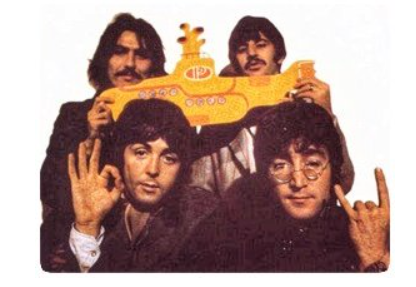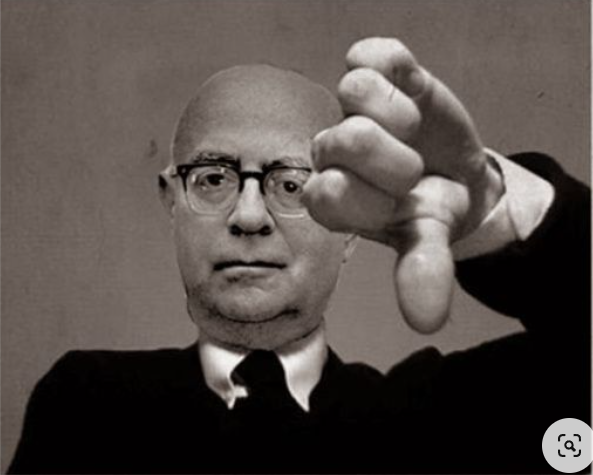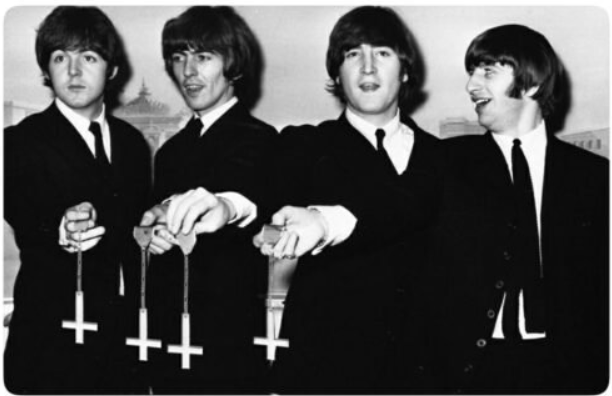“Alan: Now I think we’ve got Ryan there. Are you there?
Ryan: Hey, can you hear me?
Alan: Yes. Where are you?
Ryan: New York. Earlier in the talk you briefly mentioned how entertainment works because your guard is temporarily put down and I was thinking of how George Harrison has really strange songs once you become aware of the propaganda matrix.
Alan: Is there any particular ones you’re thinking about?
Ryan: Yes. ‘I’ve Got My Mind Set on You’ and the lyrics roughly go along: It’s going to take a lot of precious time. It’s going to take a lot of money to do it right; and they put it in this hunky- dory fashion and you don’t really — I don’t know. It could just be a joke or it could be programming.
Alan: It could be the programming, too. I know that he was the quieter one of the whole bunch and by that time, just before he died, they all knew, the survivors knew that they’d all been used. They all knew that. One continued to be used and was quite happy to go higher up the social ladder, but Lennon knew as well because McLuhan told him when they visited Canada that they were actually getting used. Because Lennon truly believed that a peace movement could literally alter the world and get people communicating, get back to some kind of value, something, and he was shattered when Marshall McLuhan told him that — because he really respected McLuhan, when McLuhan told him that you’re all being used. However, they all knew eventually and I think Ringo Starr did a tour to say he couldn’t remember a single thing during the whole Beatles era because he was in such an alcoholic haze most of the time, which is a great way of protecting yourself.
Ryan: They probably purposely handled them to be like that.

Alan: I have no doubt. I have no doubt and it could be a wise thing after one of them gets shot. That’s how it really goes and because the whole culture industry of what was to be “in” was promoted from the top and the ones who started off the particular Beatles era with Martin and all
the rest of them behind them and all the high technology they had. They had much better equipment than anyone else had ever seen. I’m sure it all came from the military-industrial complex, too, and even stereo came — I can remember when the Stones said that stereo would never take off and they were still recording on mono and Martin came out with the stereo stuff and it simply took off like crazy. A lot of psychological tampering went on with the particular Beatles songs if you listen to the style of the songs, it was meant to go hand in glove with particular types of being stoned and certain drugs that were out at the time. It was purposely designed for it. You know Strawberry Fields Forever, Lucy in the Sky with Diamonds, LSD and all of that.
Ryan: Theo Adorno, you know he’s pretty tough to read.

Alan: Adorno is and people don’t realize that Adorno who was a professor at different universities in Germany held the rights to all the Beatles songs up until he died and then Michael Jackson bought them over. Paul McCartney put a bid in but didn’t get it.
Ryan: I think on Wikipedia it said that he died in ’69, but they broke up in ’70.
Alan: Adorno also had a school that started and he was at the Frankfurt School, a part of that whole team, where they started the culture creation industry. Do you realize how much the culture of the west really created the average American or North American person through all the advertising and the lifestyle and so on? They realized that it was massive psychological tool that everything that came out of the media was a tool that could be used heavily to guide millions of the population along a certain path. They also knew and this was well understood in Adorno’s school by the ones who ran the West, those at the top of the West, and they had conflicts at times with people they had to work with during the Cold War. You had Trotskyites — there were Trotskyites that were recruited by MI6, ardent Trotskyites that fell out with the rest of the Soviet Union. They wanted perpetual revolution but they also teamed up with MI6 and the fascist side during the entire Cold War right up to the present day and they eventually all got together with the one path, which really is a fascist system that we’re coming into. They were won over eventually.
Ryan: Before I read or attempted to read ‘Culture Industry’ by Adorno, I didn’t even think you could even think like that. They’re so much smarter.
Alan: He himself was well versed in some of the best almost metaphysical literature which I’m sure you could imagine which contains techniques of memorization and he even said in one of his books that he hated having to write in English because it was too limited a language. He preferred German and that even though it’s going to be translated and the English readers might lose the train of thought, he said, because my sentences could be a whole page long. Most people in the West it’s true they can hardly read a single line now without losing track. If it goes over two or three lines they lose track of the beginning of the sentence.
Ryan: You can’t really read more than a sentence at a time in ‘Culture Industry’ — especially without footnotes, it’s very difficult.
Alan: Yes, but I could and I’ve read all his books and I could follow his train of thought all the way through, although he said himself that very few could. It’s incredible when you realize these guys have been trained from birth for this kind of stuff, you understand?
Ryan: Yes and they think on a different level.
Alan: Yes they do and they’re incredibly elitist as well. Very elitist, all these guys — see the Trotskyites also believe what the fascist believe and that was the most intelligent had the right to rule the masses. They had a right to rule them.
Ryan: It’s like the guy that showed you the globe, the domed Toronto, and he didn’t want to tell you why; it’s probably because that’s where he’s going to be living.
Alan: I’m sure. He’s probably been promised his own little bed in there. He’s a lord, this guy, now.
Ryan: How do you end up even bumping into those people?
Alan: His name was Galen Weston and I’ve been through so many different scenes in music and all the rest of it you eventually get to know people, because, especially, I was versatile and I could do studio work. I could get groups together for rock musicals and play on stage and I could also go off and do solo work with classical myself. After the big shows you get to meet the hobnobs who’d ask you off in home just to show you off I guess.
Ryan: Back to the other side of the coin, is that you?
Alan: Pardon.
Ryan: | like that one.
Alan: I can’t say too much. If I say the stuff I’ve done it would cause too many lawsuits, and there’d be some very bruised egos too.
Ryan: All right, it was good talking to you Alan.
Alan: Thanks for calling. Yes, we do have quite a world here. It’s amazing. Some people’s lives you meet so many kinds of people in different situation and that’s what I’ve been doing and also wrote various books under a couple of different names as well in the past.”
[Alan Watt, Cutting through the Matrix, 2007]

